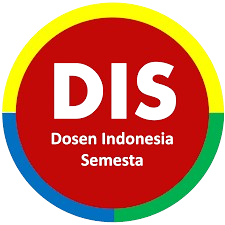The Effect of Game on the Students’ Tense Achievment
DOI:
https://doi.org/10.36526/ln.v5i2.1783Keywords:
Game, Teaching Tense, Students’ Tense AchievementAbstract
This research was conducted to investigate the effect of using game on the seventh-grade students’ tense achievement at SMPN 2 Balung-Jember. The primary data of this research were collected from the students’ scores of tense test. The primary data were collected from the post-test to compare the two different groups after treatment and analyzed the result by using independent sample T-Test (SPSS). Based on the calculation, the result of this research showed that there was a significant effect of using game on the seventh-grade students’ tense achievement. It was proved by the value of significant column of t-test table by using SPSS software, and the result was 0.045 which was lower than 0.05 (significant level of 5%). The research results proved that there was a significant effect of using game on the seventh-year students’ tense achievement at SMPN 2 Balung-Jember. Therefore, it is recommended for the English teacher to use game as an alternative technique in teaching tenses.
References
Allsop, J. (1990). Cassell’s Students’ English Grammar. Philadelphia: Open University Press.
Alter, J.B. (1991).Essential English Usage and Grammar 3. Jakarta: Bina Rupa Aksara
Arikunto, S. (2006). Prosedur Penelitian: Suatu Pendekatan Praktik. Jakarta: PT. Rineka Cipta.
Ary, D., Jacobs, L.C., & Razavieh, A. (1976). Pengantar penelitian pendidikan. Terjemahan oleh F. Arief. (1982). Surabaya: Usaha Nasional.
Ary, D., Jacobs, L.C., Sorensen, C.K. (2010). Introduction to Research in Education. Eighth Edition. Belmont: Nelson Education, Ltd.
Azar, B.S. (1993). Understanding and Using English Grammar 3rd Ed. New Jersey: Prentice – Hall, Inc.
Boakes, C. (2010). Snakes and Ladders Games. (Online). http://ezinearticles.com/?Snakes-and-Ladders-Games&id=5553925.
Byrne, D. (1987). Techniques for classroom interaction. Harlow: Longman.
Carrier, M. & The Centre for British Teachers. (1985). Take 5. Games and Activities for the Language Learner 2nd Edition. London: Nelson.
Cohen, L., Manion, L., Morrison, K. (2007). Research Methods in Education. Sixth Edition. Oxon: Routledge.
Comrie, B. (2000). Tense. Cambridge: University Perss.
Declerck, R. (2000). The Grammar of the English Tense System: A Comprehensive Analysis. Berlin: Mouton de Gruyter.
Djiwandono, M.S. (1996). Tes Bahasa dalam Pengajaran. Bandung: ITB.
Ersoz, A. (2000). Six Games for the EFL/ESL Classroom. The Internet TESL Journal, Vol.VI, No.6, June 2000. (Online). http://www.itesl journal.org.
Gribbons, Barry & Herman, Joan. (1997). True and quasi-experimental designs. Practical Assessment, Research & Evaluation, 5(14). (Online). http://PAREonline.net/getvn.asp?v=5&n=14
Hadfield, J. (1990). Intermediate Communication Games. England: Longman.
Hitchcock, S., Carr, L., & Hall, W. (1996). A Survey of STM Online Journals, 1990-1995: The Calm before the Storm, (Online), (http://journal.ecs.soton.ac.uk/survey/survey.html), diakses 12 Juni 1996
Hornby, A.S. (1995). The Advance Learner’s Dictionary of Current English. London: Oxford University Press
http://supershy.wordpress.com/alt-materials/teaching-stuff/
http://www.craftscope.com/snakes-and-ladders-game/
http://www.wikihow.com/Play-Snakes-and-Ladders
Hughes, A. (1996). Testing for Language Teachers. Cambridge: Cambridge Press
Huyen, N and Khuat Thi, N. (2003). Learning Vocabulary through Games. Asian EFL Journal-Desember 2003. (Online). http:// www. Itesl.journal.org.
Khan, J. (1991). Using Games in Teaching English to Young Learners. In Teaching English to Children. London: HarperCollins Publishers.
Kim, L. S. (1995). Creative Games for Language Class. 'Forum' Vol. 33 No 1, January - March 1995, Page 35. (Online). http://eca.state.gov/forum/vols/vol33/no1/P35.htm
Kramer, W. (2000). What Is A Game?. (Online). http://www.thegamesjournal.com/articles/WhatIsaGame.shtml.
Lewis, A. (1999). Using Games in an EFL Class for Children. (Online). http://iteslj.org.
Maroney, K. (2000). My Entire Waking Life. (Online). http://www.thegamesjournal.com/articles/MyEntireWakingLife.shtml.
Mashyud, S. (2008). Analisis Data Statistik untuk Penelitian Sederhana. Jember; unit PPL dan Microteaching Fakultas Keguruan dan Ilmu Pendidikan Universitas.
McMillan. J.H. (1992). Educational Research: Fundamentals for Consumers. New York: Harper Collin Publisher.
Mei, Y. Y. & Yu Jung, J. (2000). Using Games in EFL Classes for Children. (Online). http://english.daejin.ac.kr/~rtyson/fall2000/elt/games.html
Mufli. (2010). Tenses Bahasa Inggris. (Online). http://tensesbahasainggris.com/
Murphy, R. (1998). English Grammar in Use. United Kingdom: Cambridge University.
Nababan, S.U.S. (1986). Metodologi Pengajaran Bahasa. Jakarta: P.T. Gramedia Pustaka.
Prahmana, R.C.I. (2012). Pendesainan Pembelajaran Operasi Bilangan Menggunakan Permainan Tradisional Tepuk Bergambar Untuk Siswa Kelas III Sekolah Dasar (SD). Unpublished Thesis. Palembang: Sriwijaya University.
Setiyadi, B. (2006). Metode Penenelitian Untuk Pengajaran Bahasa Asing pendekatan Kuantitatif dan Kualitatif. Yogyakarta: Graha Ilmu.
Sudijono, A. (1998). Pengantar Evaluasi Pendidikan. Jakarta: PT Raja Grafindo Persada.
Sudjana, N. & Ibrahim. (2004). Penelitian dan Penilaian Pendidikan. Bandung: Penerbit Sinar Baru Algesindo.
Sudjana, N. (1990). Penilaian Hasil Proses Belajar Mengajar. Bandung: PT. Remaja Rosdakarya.
Tapanes. (2008). Independence/Homogeneity test. (Online). http://www.coedu.usf.edu/it/flash/FlashShowcase2008/Tapanes/independencehomogeneity.html.
Uberman, A. (1998). The Use of Games: For Vocabulary Presentation and Revision. Vol 36 No 1, January - March 1998 Page 20. (Online). http://eca.state.gov/forum/vols/vol36/no1/p20.htm.
Uchiyama, K. (2006). English Verb Tenses: An informal but extensive reference. (Online). http://www.chabotcollege.edu/languagearts/esl/verbtensebook.asp.
Wright, A., David, B and Michael B. (1996). Games for language learning. Cambridge: Cambridge University press.Crystal, D. 2004. In Word and Deed. TES Teacher. 30 April 2004. (Online). http://www.tes.co.uk/article.aspx?storycode=393984.
Downloads
Published
How to Cite
Issue
Section
License
This work is licensed under a Creative Commons Attribution-ShareAlike 4.0 International License.


















